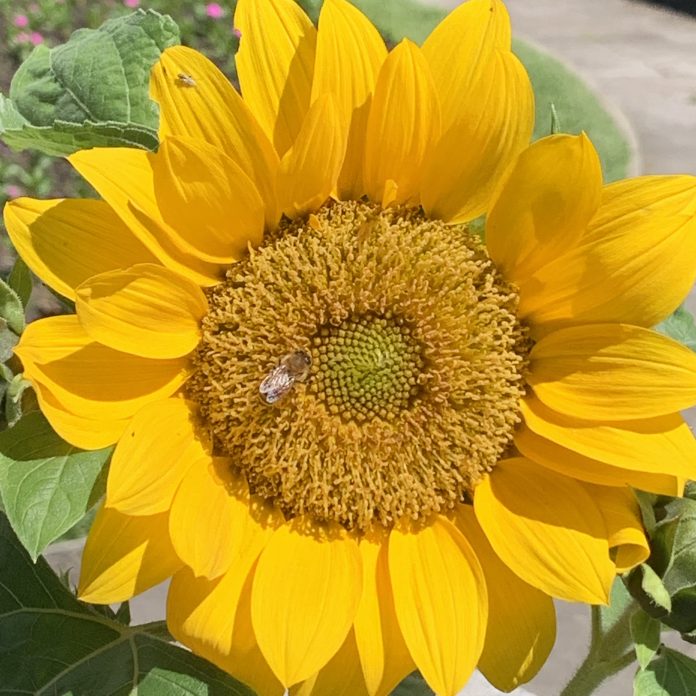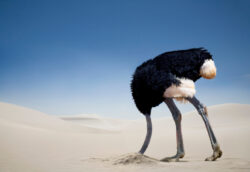I have come to medicine later in life. I was 32 when the impulse to study medicine came, 34 when I sat the entrance exam, and 35 when I started. The course lasted 4 years, so I began my internship at the age of 39.
This put me in a common position with others who are also going through medicine, having had a different life prior. There’s a sense of: “I’m too old” or “I can’t do ‘x’ training pathway because I will be 49, or 35, or ‘y’ years old by the time I finish”.
This approach led me to feel a sense of urgency that I must get in and out through medical training in the quickest time possible, such that I could spend my life qualified, serving the community in a way I thought was for me. I felt confident whilst in lectures that some information would not apply to me because of this, and hence I would not need to know the intricacies of, let’s say, genetic conditions.
Had I gone into medicine directly from high school, the chances are high that I would be a consultant by now. Indeed, there are other consultants younger than I, whom I celebrate. Good on them for having themselves organised and oriented towards life in medicine earlier than I did!
I respect and admire people who have followed a more traditional pathway from school into university studies to ultimately qualify as a doctor. They have recent and rapid recall of a broad range of sciences, having had no breaks in their study with time to forget what they have learnt. The foundational sciences of biochemistry, physiology, anatomy, pathology and pharmacology are invaluable when with patients, garnering a fuller understanding of how to treat various pathologies. In medical school, my younger colleagues were adept and quick to answer questions – which used to annoy me at times, as I felt mentally slow and plodding, like a donkey, still pondering that the lecturer had presented us with a question and wondering what could the answer be, while my neighbour was quick to answer (usually correctly).
When I first started my intern position, there were moments I walked onto the ward and some staff assumed I was a new registrar, an illusion I was quick to dispel. An intern with a few weeks’ experience cannot answer questions nor manage patients to the level of someone who has several years’ training under their belt!
“I’m too old”
Although I would sometimes feel that I was too old, this sense of being ‘too old’ is a curse. It relegates people who are past a certain age, different for us all, that once beyond, one has a sense of shame they should have ‘been there’ or ‘done that’ beforehand. To attempt to do so after this arbitrarily chosen age reveals some kind of pathetic-ness, some ‘so late to the party, it’s over’ mentality that we feel we have to apologise for ourselves and our presence.
Rather, the life I led before enriches the lived experience I offer through my presence, whether it is discussed or not.
The fact that in and by my 4th decade I have seen and engaged with so much in the world means that these everyday aspects of life have become far more natural for me, allowing the focus to rest on other areas of training. I have achieved a certain mastery over these aspects, which I have found, through trial and error, supports me to live to my fullest potential. This self-mastery offers a resource for junior colleagues to refer to for workplace matters, such as overtime and leave, for interpersonal relationships, both personal and professional, as well as for navigating ‘the system’, self-care, sleep and the like, if they so choose (and if our workload allows).
The bonding many doctors engage in at evening functions and events, over a couple of drinks, is a phase of life I have long since left behind. I am aware this may have put me at a disadvantage in terms of networking and collegiate support, as my relationships with colleagues are not strengthened by informal out of work association, with all its camaraderie and banter. I choose my events wisely, as I value my rest at home, my routine with enough sleep, exercise and preparation for what’s ahead. Late nights out with big meals and much wine do not support me.
I am a rookie doctor, but not a rookie human being
I am a rookie doctor, but not a rookie human being. I have been around. I have had many relationships, both work and personal, and have learned much about what to allow in these relationships and what not to. I have become more ‘me’ over the years, having lost and reclaimed myself again long before starting medicine. It is, for me, a constant focus to retain my most natural sense of self, rather than allowing myself to be chewed up and spat out by a career that seems to value what you can do over who you are.
The medical system is a harsh one. People adjust in a variety of mostly maladaptive ways. Not universally, as there are some absolute hearts of gold within the bodies of my colleagues, though the training takes its toll. This can manifest in offhand or callous comments about patients, their families or their conditions, dismissive or disrespectful comments about colleagues, overwhelm to the point of giving up or going slow, killing time or leaving early, change to training pathways – taking a hit to the sense of self and a pay cut to do so, a brusque and humourless approach to one’s daily work, or taking pleasure in one’s position of greater knowledge and flaunting that, however subtly, over others.
Although the organisation I work within has a values-based ethics framework, and aims to embody certain principles that we all can aspire to – simple things, like respect and compassion, team work and integrity – these things often mean different things to different people; we can bargain with ‘the system’ to rationalise our own position in relation to the desired quality.
For instance, I think I’m pretty good at communication, and often get feedback that supports this impression. However, if I’m in a situation that challenges this, or asks more of me, I can either stand my ground and say, ‘but I’m good at communication, they must be wrong’, the classic ‘but they don’t understand me’, or instead, I can use the opportunity to more deeply reflect and seek out any pockets where my (lack of) communication has lessened my otherwise strength.
Considering specialty training
I have recently been guided to select a certain career pathway that may involve training until I am nearly 50. Would this dissuade me?
Absolutely not. I realised recently that a push I had previously felt to choose a career with the shortest training time to consultancy was not supportive and holding of myself personally, as a developing clinician, nor of the people I would see as patients, not to mention colleagues already established in that field. Experience cannot be bought, and it does take time. I am lucky enough to be able to integrate my experience prior to qualification with the situations I encounter now that I am working as a doctor. Others who may have started their training earlier, but who have had a more meandering, less straightforward course through medicine likewise enrich; we benefit from each other’s insight and can be guided by their experience. These are relationships to cherish.
Would it mean I might displace some younger applicant to a training position? Possibly. But I have learned that opportunities come and go, reminiscent of the phrase ‘what goes around comes around’. Any unsuccessful attempt brings a chance to reflect on what might be at play to bring such a result – which ultimately can expose and reveal a truism one hasn’t felt or seen, particularly if push or drive has brought you to that point. So whether it’s me or another who may be in that position, there is nothing to be lost. And what I bring to the profession can have immense value, partly because of my greater worldly experience, which has come with age.
I could not have entered medicine any earlier than I did
On reflection, I could not have entered medicine any earlier than I did, purely because I had not yet developed the aspects of myself that place me so perfectly to now practise its art and science. I feel strongly about encouraging others to know themselves in and throughout their medical training and work, as to lose oneself in this system is to be at the mercy of a whole lot of harsh, cold, disconnected and heartless arrogance and abuse that ultimately has a lot to answer for. While this is not a foregone conclusion, it takes dedicated attention combined with deep care for self to avoid being touched or taken by it.
As encouraged by one of my mentors, from now on, I will make my medical training not only about time, but about space. I will not just ask myself: ‘Do I have the time to do this?’ but also ask: ‘Do I have the space?’ If I make life about time, then I feel pressured by the number of my age and the passing of the clock. I have found if I focus on the quality of the space inside and all around me, I feel less pressured in my body and my being while I am doing what I do, and have noticed this has a flow on effect to those around me, from nursing staff and patients to my medical colleagues. Even if I complete my specialty training aged 50, what I bring to my profession during those training years and beyond, will be of a quality that I personally could not have brought as a younger person, without the life experience, its associated humility and embodied wisdom that I have now.
What we often overlook in medical training is how our personal qualities imbue our work with a flavour unique to us. In the competitive world of medical training, overemphasis can often be placed on outcomes, numbers, and throughput. Where possible, I encourage my colleagues to know their strengths such that they work with more enjoyment and self-empowerment, with the knowledge the whole team is enriched by their presence.
This remains true regardless of whether doctors have lived a full life prior to medicine; indeed, it would not be realistic to have a medical workforce based on this – we would all have a shorter professional lifespan!
However, rather than an ageism that creeps in elsewhere in our society, where older people have less value than those younger, medicine benefits from people who have lived and been enriched by life. I celebrate fully the fact that while I have come to medicine later in my life, I am now able to embrace it not just with my mind, but with my whole heart and soul.
With thanks to EM, AM and PH









